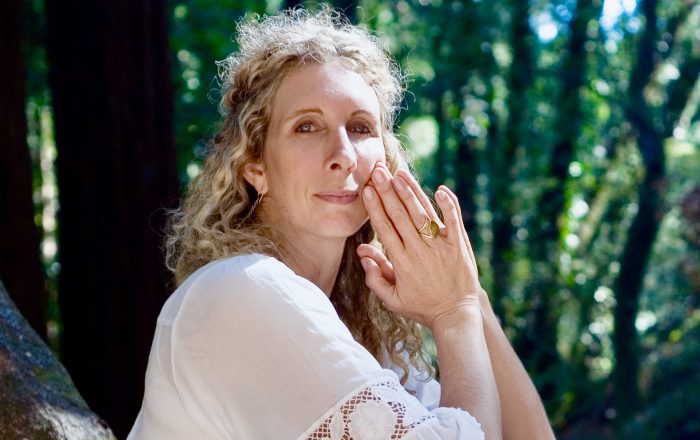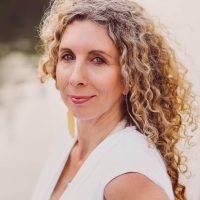I can feel something wishing to be written from my heart to the world, but I don’t yet know what it is. Even to write this sentence requires some mysterious leap of faith.
I have felt so quieted by these times, so continuously floored and stilled at the heart of the storm.
Something huge is dissolving, disappearing, disintegrating, deconstructing at the heart of our world, at the heart of our culture, and simultaneously, inside me, at the heart of my relationship with myself and with life. Can you relate?
Who are we, individually and collectively? What are our true values? What are we willing to give for this, and give up for this?
What do I stand for? What am I here to say, to extend, to give, to live with my one precious, fleeting lifetime?
Where does my real value as a human being lie beyond my inherent value? What can I honestly contribute? What does it mean to create real impact in these times?
My honest unknowing in relation to these vital questions has left me feeling humbled and deeply quiet.
As the collective conversation has gotten louder and more divisive, warring opinions designed to distract and divide, personally I’ve been driven inward.
The tumultuous and volatile mirror of our world has asked me to sit, and be still, and to reflect upon my part in this mess and my evolving part in the remedy.
Sometimes, my silence feels like the best and wisest thing I can offer.
All spring, I sat schooling my children at our dining room table; planting arugula in our new raised beds; cooking and cleaning; cooking and cleaning; tending to my fiery, restless, cooped-up, extroverted boy, and my teen girl, aching to spread her budding wings.
I could see the multi-layered uncertainty of our world reflected in my children’s questioning faces.
As I walked around my neighborhood, I’d listen closely—to my own breath breathing, and my own feet stepping, meeting each new moment afresh.
I listened to the timeless wisdom blowing in on the winds, speaking eagerly through the mouths of the leaves, and the persistent squawking of the ravens.
I listened to the sound of rapid dissolution, of divine disintegration, undeniable transformation, singing from the heart of our collective chrysalis.
And as the summer heat began to rise, and George Floyd was brutally lynched before our eyes, and Breonna Taylor’s reckless murder came to light, alongside countless others, and people took to the streets, and took to social media with their torches and hashtags, with such a wild mixture of beautiful, righteous nobility and blatant self-righteous posturing, I became even more profoundly quieted than before.
I finally sat down to read White Fragility, by Robin Diangelo, which I’d heard about for years. And then reading Layla’s F. Saad’s article, I Need to Speak to Spiritual White Women about White Supremacy, led me to reading her stunning book, Me and White Supremacy, which is really so much more than a book—it’s a provocative, catalytic classroom.
I watched the brilliant films “13th” and “I Am Not Your Negro.” My heart wept for days, grieving all the atrocious harm that has been caused, and is still being caused in this moment as I write these words.
My kids and I began to engage in long overdue and wildly necessary conversations, about what it means to have been born with white skin and white privilege in a country that was founded upon genocide, and built upon the backs of Black slaves.
As a family of white privilege, we began to ruthlessly examine what it means to live with internalized racist conditioning, and with white supremacy as the subtle, deadly backdrop of our perceptual awareness.
In feeling so authentically silent, I’ve been equally confronted by the hard, painful truth of white silence, and how close it can lie—even inside my deeply caring heart—to white apathy.
With grueling self-honesty, I’ve seen the way in which white fragility in me doesn’t show up as anger or argumentative defensiveness, or as some overwhelming sense of white guilt and shame, but rather as a spiritually justified white silence—a falling silent around these vital issues, in fear of having nothing fresh nor useful to contribute to the conversation.
I confess I’ve felt somehow incapable of talking about racial inequity without coming across as a total fool. And yet ironically—what a fool to say nothing at all, right?
Not for the first time in my life, I see how my preoccupation with my image has taken precedence over using my voice to speak up and speak out, in moments that matter the most.
It is humbling to recognize this pattern, to say the least.
I’ve burned in the following questions:
As fiercely and truly as I stand with BIPOC in my heart, my mind, and my soul, how, in my silence, am I still part of the problem?
How is my silence a subconscious defense of my white privilege?
How is my silence a form of laziness, apathy, and complacency?
How is my silence a privileged insistence that other people should take care of this huge, cultural problem on my behalf?
Simultaneous to this inquiry, I’ve developed an allergy to the performative alliance that has run rampant through my social media feeds.
As imperative as it is for white people to take on the education of one another on racism, unburdening BIPOC at the very least of this task—particularly in the white spiritual community that is dangerously prone to “color-blind” sentiments and devastating statements such as “All Lives Matter”—I’ve felt mortified to witness countless moments of white people hatefully shaming other white people in the name of this “necessary schooling.”
I’ve also seen inspiring modeling of extremely skillful anti-racism education, for which I’ve been deeply grateful.
But it’s been shocking to witness so many white people apparently becoming experts overnight on these tender issues of white privilege and white supremacy, and taking it upon themselves to call out, slander, insult, and shame others who aren’t behaving within a certain acceptable framework.
This kind of behavior reeks of defensive posturing, a desperate need to expose one’s own “good, non-racist behavior” at the cost of basic kindness, decency, respect, and love.
To my eyes, I’ve seen that the very same poison festering at the heart of white supremacy—that of arrogant superiority and self-righteous self-protection—is now being turned on whites by other whites, under the guise of “education.”
My heart has ached and my stomach turned every time I’ve caught whiff of this disturbing behavior, and I’ve found myself taking longer and longer breaks from social media.
I remain a humble beginner and student in this inquiry, carefully examining my own white, privileged piece in the equation. I feel how essential it is to continue to dig deep and acknowledge the role I have unconsciously played in supporting white supremacy and multi-layered systems of oppression and inequity.
I see how I’ve played a part in what’s sick, broken, cruel, and failing in our world. And so what naturally follows is to commit myself, more strongly than ever before, to being an integral part of the healing, the salve, the awakening, the medicine.
I want to discover how to step beyond the habit of silence around these issues, and how to find a true, authentic way that I can personally stand as a reliable ally to BIPOC.
It doesn’t necessarily need to happen on social media. But it does need to happen.
And honestly, I do feel genuinely quiet in these times. Deeply and profoundly quiet. The kind of quiet found at the dissolved heart of the chrysalis, and the holy core of the storm.
This is a form of quiet I’ve learned over time to respect and revere when it arises. A quiet that balances all the toxic and harm-causing noise. A quiet from which true insight and prayer are born.
Discerning when to be silent and when to speak is an essential aspect of the responsibility inherent in having a voice.
And—I don’t want to hide behind this quiet.
Clearly, we can cause harm with our voices, and also with our silence. We can make a mess with our verbal reactivity and posturing, as well as with our avoidance.
I want to be in right relationship with myself, with my heart, and with the heart of our evolving world. I want to learn how to speak up and speak out where it counts the most, and with love.
Please God, help me to be a truer steward of my own voice.
“A time comes when silence is betrayal. Even when pressed by the demands of inner truth, men do not easily assume the task of opposing their government’s policy. Nor does the human spirit move without great difficulty against all the apathy of conformist thought within one’s own bosom and in the surrounding world. Moreover, when the issues at hand seem as perplexing as they often do in the case of dreadful conflict, we are always on the verge of being mesmerized by uncertainty. But we must move on.
Some of us who have already begun to break the silence of the night have found that the calling to speak is often a vocation of agony, but we must speak. We must speak with all the humility that is appropriate to our limited vision, but we must speak. For we are deeply in need of a new way beyond the darkness that seems so close around us.” ~ Martin Luther King Jr.
I love you as I love myself—truly and fiercely.
 Share on bsky
Share on bsky






Read 2 comments and reply